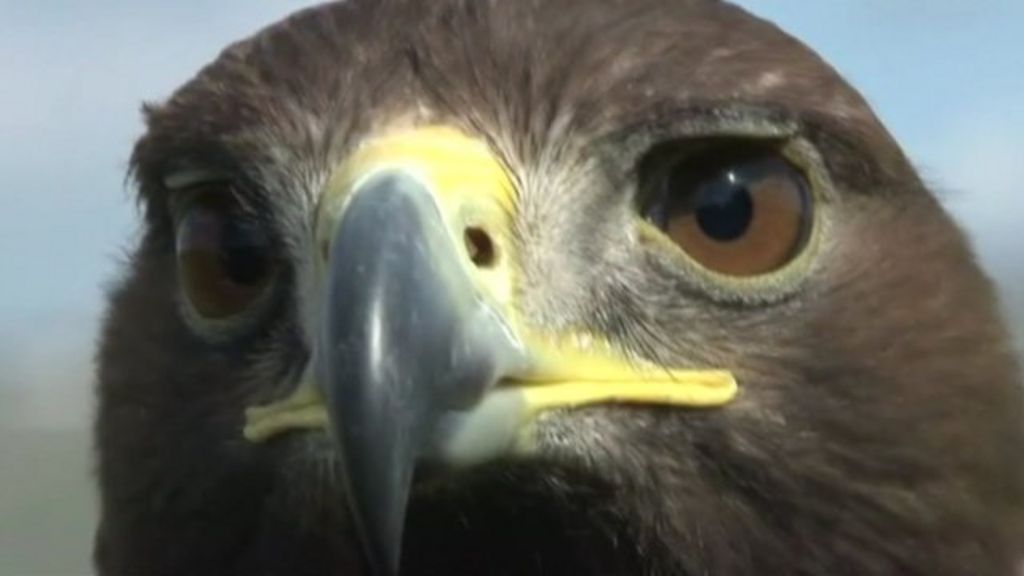Hundreds of wildlife habitats across the UK that have been protected for decades by EU laws must be preserved by the urgent introduction of new environment laws, according to MPs and campaigners.
Birds such as the red kite, golden eagle, chough, nightjar and great bittern have been saved from the threat of extinction, and habitats including oak woodland and English heathland have been preserved as a result of two key EU environmental laws, the directives on habitats and birds.
 Those areas are home to some of the most valued wildlife, insects and birds, such as the golden eagle, (left) in Britain and Europe. And the fear among activists is that the European laws which have shielded the habitats could be watered down or rendered impotent when they are rolled over into UK law upon Brexit.
Those areas are home to some of the most valued wildlife, insects and birds, such as the golden eagle, (left) in Britain and Europe. And the fear among activists is that the European laws which have shielded the habitats could be watered down or rendered impotent when they are rolled over into UK law upon Brexit.
Mary Creagh, the Labour MP who chairs the House of Commons environmental audit committee, said a new Environmental Protection Act was needed to safeguard many species and landscapes.
“EU law protects many of our treasured natural places and iconic British species,” she said. “The Government’s EU Withdrawal Bill means that these protections could end up as zombie legislation, no longer updated or enforced and able to be eroded by ministers.”
When the EU directives came into force in 1981 and 1992 the red kite was rare in the UK, with just a few dozen pairs in Wales. The new legal protections, combined with EU-funded projects to reintroduce the birds of prey, have seen a huge increase to nearly 2,000 pairs spread across the UK.
Tough EU laws
 Harbour porpoises (left) in Dogger Bank off the north-east coast, stag beetles on Wimbledon Common and the great crested newt are all among species protected by the tough powers in the twin directives.
Harbour porpoises (left) in Dogger Bank off the north-east coast, stag beetles on Wimbledon Common and the great crested newt are all among species protected by the tough powers in the twin directives.
The laws require European countries to create, maintain and update protected sites, known as special protection areas (SPAs) and special areas of conservation (SACs), which together are known as Natura 2000 sites.
MPs and leading environmental groups including the Royal Society for the Protection of Birds are calling for fast action to ensure that the network of 929 Natura 2000 sites in the UK are preserved and upgraded after Brexit with tough domestic legislation and an independent domestic enforcement body.
A cross-party group of MPs has tabled an amendment to the EU Withdrawal Bill, which is due to be debated in committee this month, to stop the directives and other EU laws becoming defunct and unenforceable when they are rolled over into UK law.
Richard Benwell, head of government affairs at the Wildfowl and Wetlands Trust, said there was a lot at stake. “These are the jewels in the crown, the most cherished habitats or the places that protect our most cherished species,” he said. The EU directives provided much greater protection of the sites than the domestic designation of such areas as “sites of special scientific interest” or SSSIs, he said.
SSSIs were lost or damaged at the rate of up to 15% a year before the directives came into force. The rate of destruction has since slowed to 0.005% of sites lost per year, and short term damage was reduced to 2-3% a year as a result of the tough wildlife protections provided by the EU directives, he said.
“There are three main fears after Brexit,” said Benwell. “Firstly, the law itself might be unpicked and loosened in terms of planning protection as a result of lobbying from groups like house builders. Secondly, the backstop of the European Commission enforcing the directives will be removed and lastly the very principle of environmental law – the precautionary principle – won’t be available to guide things.”
by Bob Graham
The post Brexit: Leaving EU A Serious Threat to Wildlife appeared first on Felix Magazine.
No comments:
Post a Comment